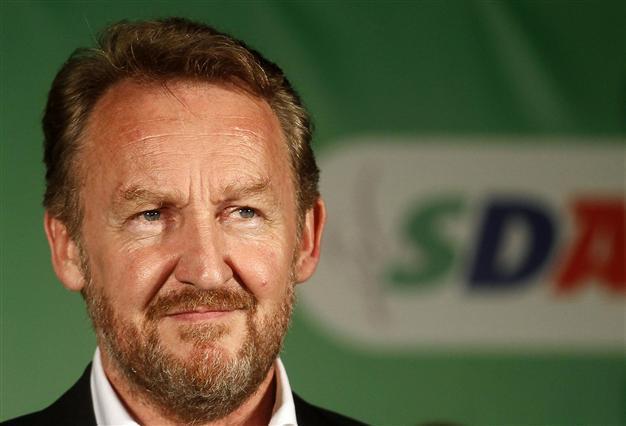Nationalists win Bosnia's joint presidency: results
SARAJEVO - Agence France-Presse

Bakir Izetbegovic of the Party of Democratic Action (SDA) attends a news conference in Sarajevo October 13, 2014. REUTERS Photo
Nationalist candidates from Bosnia's Croat, Muslim and Serb communities won the country's three-man presidency, election results showed Oct. 13, underlining continued ethnic strains 20 years after the Balkan state's civil war.With more than 90 percent of votes counted, Bakir Izetbegovic of the main Muslim SDA party and Dragan Covic of the Croat HDZ BIH party had won seats in the collective presidency.
The Serb seat remained undecided, with two nationalist candidates -- opposition figure Mladen Ivanic and Zeljka Cvijanovic, the candidate of the Bosnian Serb ruling SNSD party -- neck and neck.
The unwieldy power-sharing arrangement is part of a political system created by the US-brokered Dayton peace accord that ended a 1992-95 ethnic war in which some 100,000 people were killed.
But although Bosnia-Herzegovina has been at peace since that bloodletting, Sunday's general election, which also included parliamentary polls, laid bare widespread discontent over the economy and division along ethnic lines.
Preliminary results for the 42-seat national assembly also showed dominance by nationalist parties -- the Muslim SDA and the Serb SNSD.
About 3.3 million Bosnians were eligible to vote on Sunday, but turnout was 54 percent, about two percent lower than in 2010 polls, reflecting widespread disenchantment with what is seen as the country's corrupt and inefficient political class.
Unemployment is at 44 percent and in February mass protests broke out against the government's failure to fight graft and enact the reforms required for Bosnia to enter the European Union.
Political analyst Enver Kazaz said the slide into nationalism at the general election reflected disillusionment and would not help Bosnia fix its internal problems or speed up its EU aspirations.
"Due to lack of a competent choice and a serious political offer, citizens voted for a kind of the return to the 1990s," Kazaz said.
Today's "nationalists, those fake moderates, will not make war, but they will not hesitate to engage in political disputes" that damage the country's prospects.
















